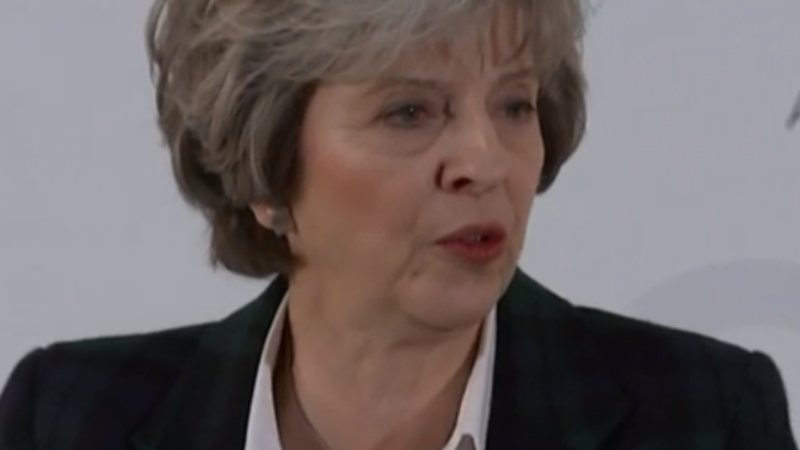

Labour has been calling for the government to adopt an active industrial strategy for years. And, while we should welcome a more interventionist state, we should also be clear that that intervention needs to be for the benefit of workers as well as for business.
Theresa May has identified a number of key strengths for Britain, including energy technology, robotics, artificial intelligence (AI) and 5G connectivity.
There’s no denying that the mix of robotics, AI and 5G will lead to major gains in economic productivity. But our industrial strategy should include a baked in requirement to invest in the development of new jobs, where increasingly intelligent robots remove old ones. We’ve already seen automation remove millions of jobs across the world where humans once performed repetitive tasks. This impact will increase ten-fold when AI starts processing big data and taking evidence based decisions more accurately and efficiently than humans. So, for every job that is lost to intelligent robots, the government should have a plan to create a new one.
What that looks like is up for debate. Some suggest that the “gig economy” means that workers of the future will have multiple jobs – working three or four different roles or projects at a time. But will these be at the exploitation of workers who are deemed to be “self-employed” and at the behest of platforms which squash their profit margins?
The pressure of being an over worked fast food delivery driver, taxi driver and private hotel provider all at the same time – with customer ratings leading to potential unemployment – could cause massive social and personal issues, not least because of the lack of translation of old economy rights, such as holiday, sick pay and maternity leave, making it through to the new economy.
Others have suggested that the productivity gains of intelligent robotics, which will no doubt end up in increased profitability for business, should be redistributed through concepts like a universal basic income; guaranteeing everyone a basic level of income and alleviating some of the pressure of the new economy on family life.
But the prospect of a pro-worker, pro-business approach from the government is very unlikely. When the prime minister wants to take billions of pounds out of the government budget by turning Britain into a tax haven, and ministers jump at the prospect of a trade deal with anyone regardless of the likely reduction in standards, then it is clear that a pro-worker approach is off the agenda. And a deregulatory approach across all aspects of the British economy will only lead to a reduction in standards for our goods and services, workers and consumers.
The good news is that the EU is leading the way in thinking through the solutions to these challenges, with the European Parliament publishing a report last week on the future of intelligent robots and their impact on workers across the EU. The bad news is that we’ll be long gone from the EU before any of these important reforms help British workers. And given the amount of parliamentary time that Brexit will take over the next two parliaments, it seems clear that time allotted for debating and legislating for the fourth industrial revolution is unlikely to materialise.
What’s clear is that any industrial strategy needs to include new rules to protect workers in the new economy. Some redistribution, for sure, but also new approaches such as state-backed insurance policies for gig economy workers who fall ill with no guaranteed income. Or tax incentives for start-ups and scale-ups who commit to creating new jobs alongside training for workers making the transition from the old to the new economy.
May has set out the big question: what type of Britain do we want to create for the future? There is no question from the Labour side of the debate that Britain can only be its best when everyone shares in the success of our new economy.
Trump is confident he can bring the jobs back and make America great again. But we in Britain need to be intelligent and recognise that the old ones will be old, and that our task is to create the new jobs for the new economy. Failure to do so will lead to mass unemployment, entrenched inequalities and a rise in the politics and divisions of populism. For everyone involved – from student to worker to CEO – that will be a failed approach to industrial strategy.
Darren Jones is the Director of Future Labour, a volunteer powered platform focussed on the future of work. He was Labour’s PPC for Bristol North West at the last general election.




More from LabourList
Antonia Romeo appointed to lead civil service as new Cabinet Secretary
‘If Labour is serious about upskilling Britain, it must mobilise local businesses’
Stella Tsantekidou column: ‘What are we to make of the Labour Together scandal?’